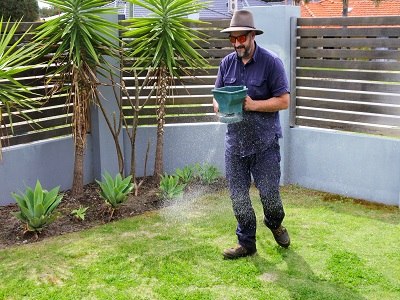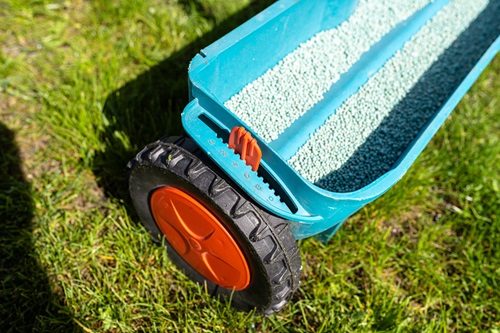
Although lawn is not a crop, they may seem like one when it comes to fertilizers. Turfgrass is “harvested” when it’s mowed frequently, often weekly. You must replenish the soil nutrients after all the growth you cut. While fertilizing your lawn is essential for its health, there are also risks associated with over-fertilizing. For example, you could accidentally use too much fertilizer or the wrong fertilizer at the wrong time. Over-fertilizing your lawn can cause a variety of problems, and even lead to lawn death. Here are some lawn care tips that help avoid over-fertilization:
How fertilizer affects lawns
The three macronutrients that fertilizers contain are nitrogen, phosphorus, and potassium (N–P-K). Special lawn fertilizers have a higher nitrogen content than the other macronutrients because nitrogen is essential for turfgrass’s vibrant growth. The soil often has enough phosphorous (P), and potassium (K), so the fertilizers proportionately contain either very little or none of these nutrients.
The important role of soil tests
A soil test is the best way to determine how fertile your lawn needs to be to sustain growth. All other information is guesswork that could cause you to fertilize your lawn too much.
A laboratory that specializes in soil testing can provide detailed recommendations on the nutrients to be added to your lawn. A soil test can also tell you if your pH level is right for turfgrass. This is important as soil pH affects how nutrients are distributed in the soil. It is recommended that you have your soil tested every 2 to 3 years. Sandy soil should be tested annually as it leaches nutrients faster.
There are many ways that lawns can be over-fertilized
The Incorrect fertilizer
Lawns require fertilizer high in nitrogen (N), indicated by N being the highest and lowest numbers for phosphorus and potassium. Common N-P-K ratios for lawn fertilizers are 3:1:2 and 4:1:2.2. A balanced or complete fertilizer that contains all three macronutrients in equal quantities (e.g., 10-10-10) is not recommended for lawns. It will result in over-fertilization of phosphorus and potassium as well as a deficiency of nitrogen.
Too much fertilizer
Slow-release or controlled-release fertilizers are recommended for lawns. This provides grass with small amounts of nutrients over a longer time. Over-fertilization can still occur if you apply too much fertilizer to your lawn. This is because you have not measured the lawn correctly and calculated the correct amount of fertilizer. Don’t fill your spreader onto the lawn as you could accidentally spill too much fertilizer.
Fertilizing too often
The recommended lawn fertilizer is slow-release and should not be applied more than three times per year.
Fertilizer buildup
Fertilizers can build up in heavy soils with poor drainage. To prevent fertilizer over-fertilization, a soil test is required.
Signs that your lawn is over-fertilized
Over-fertilizing can cause a crusty residue in the soil. This can be remedied by watering the soil after you have scratched it with a rake. Other signs that your lawn is over-fertilized are more serious and last longer.
The consequences of over-fertilized lawns
Fertilization can cause more harm than is apparent to the naked eye. Lawn fertilizer is also a major source of nitrogen pollution. Excess nitrogen seeps into groundwater and eventually ends up in rivers and streams. Fast-growing algal species, such as toxic red tide algae, are also fed by nitrogen. These harmful plants outcompete slower-growing ones. The death of plants can cause a lack of oxygen in the water, which can have devastating effects on fish and marine life.
Fixing over-fertilized lawn
It is possible to correct the problem if you realize you have over-fertilized. It doesn’t matter how severe the problem is, there are many ways to fix it. You can take immediate action by watering your lawn and removing any excess fertilizer. Sometimes, it is better to wait until all the fertilizer has evaporated. Worst case, you may need to reseed areas where grass has been damaged by fertilizer burn. It is recommended to get lawn care services if you aren’t too familiar with fertilizing soil in general.
Fertilizing your lawn is definitely not rocket science but it isn’t the simplest thing to do. To avoid over-fertilizing your lawn, let an expert to it. Call Conner’s Lawn Care Service today for professional lawn care services.
Conner’s Lawn Care Service
Myrtle Beach, SC
843-504-4901
http://connerslawncare.com/

